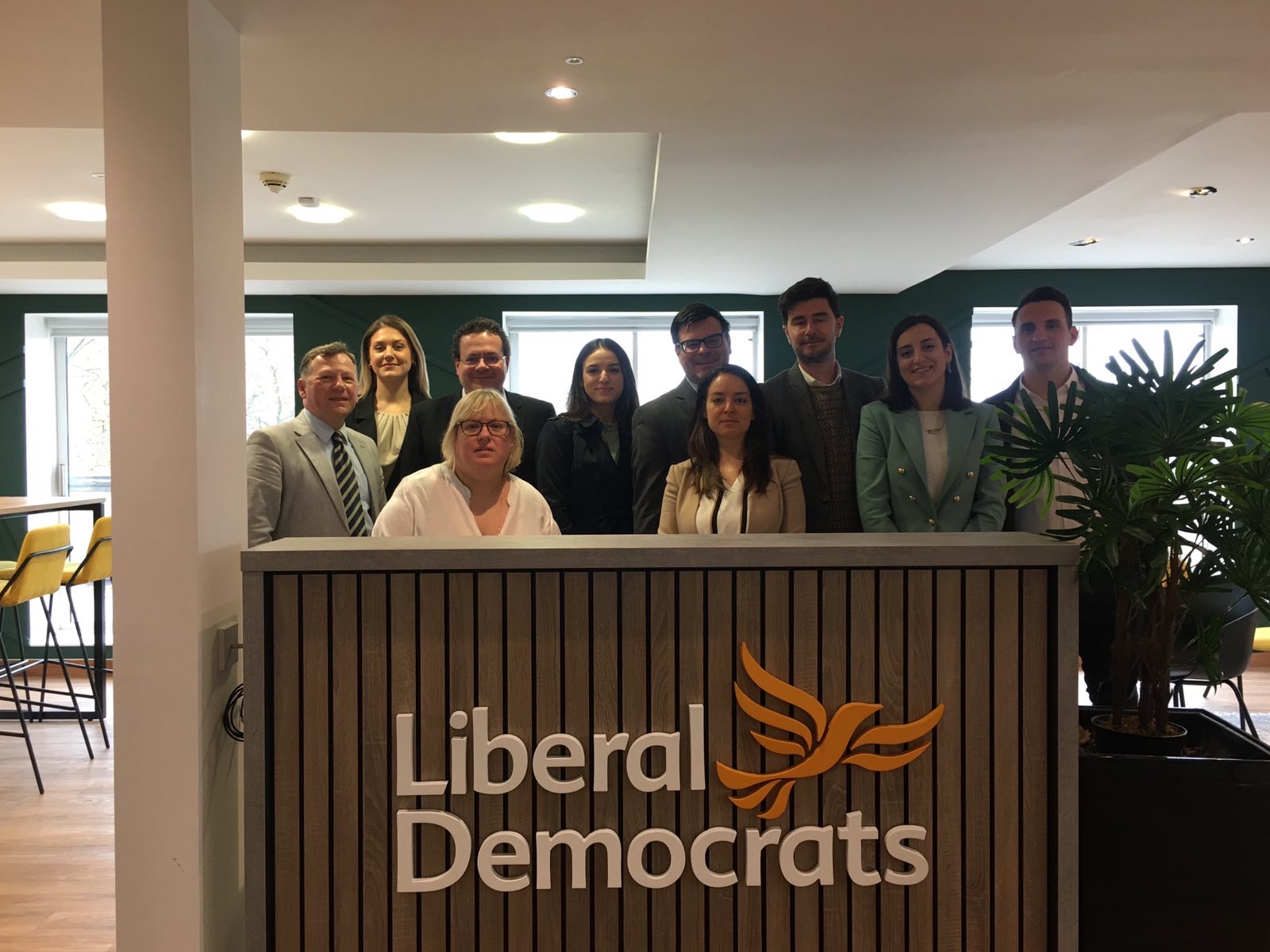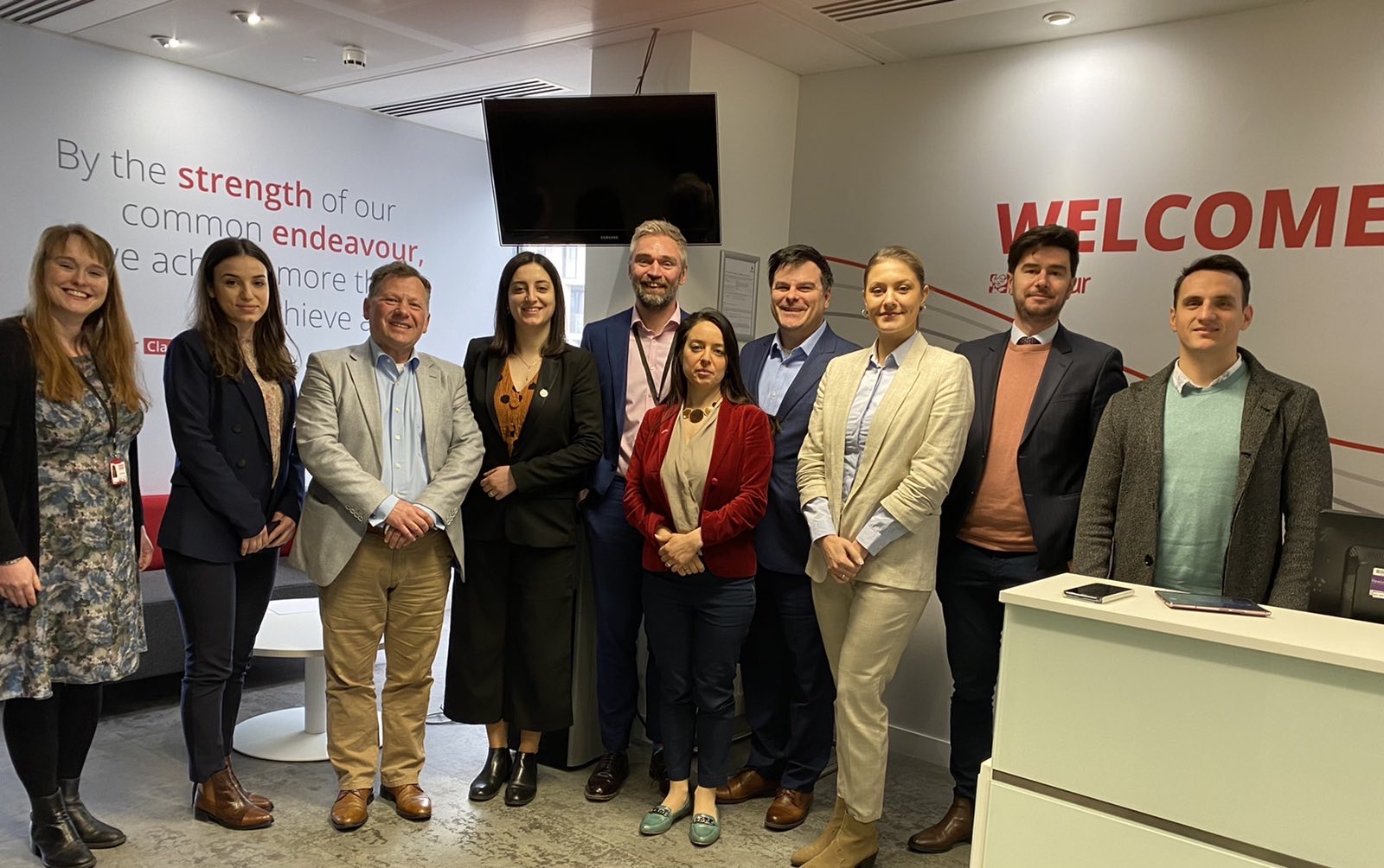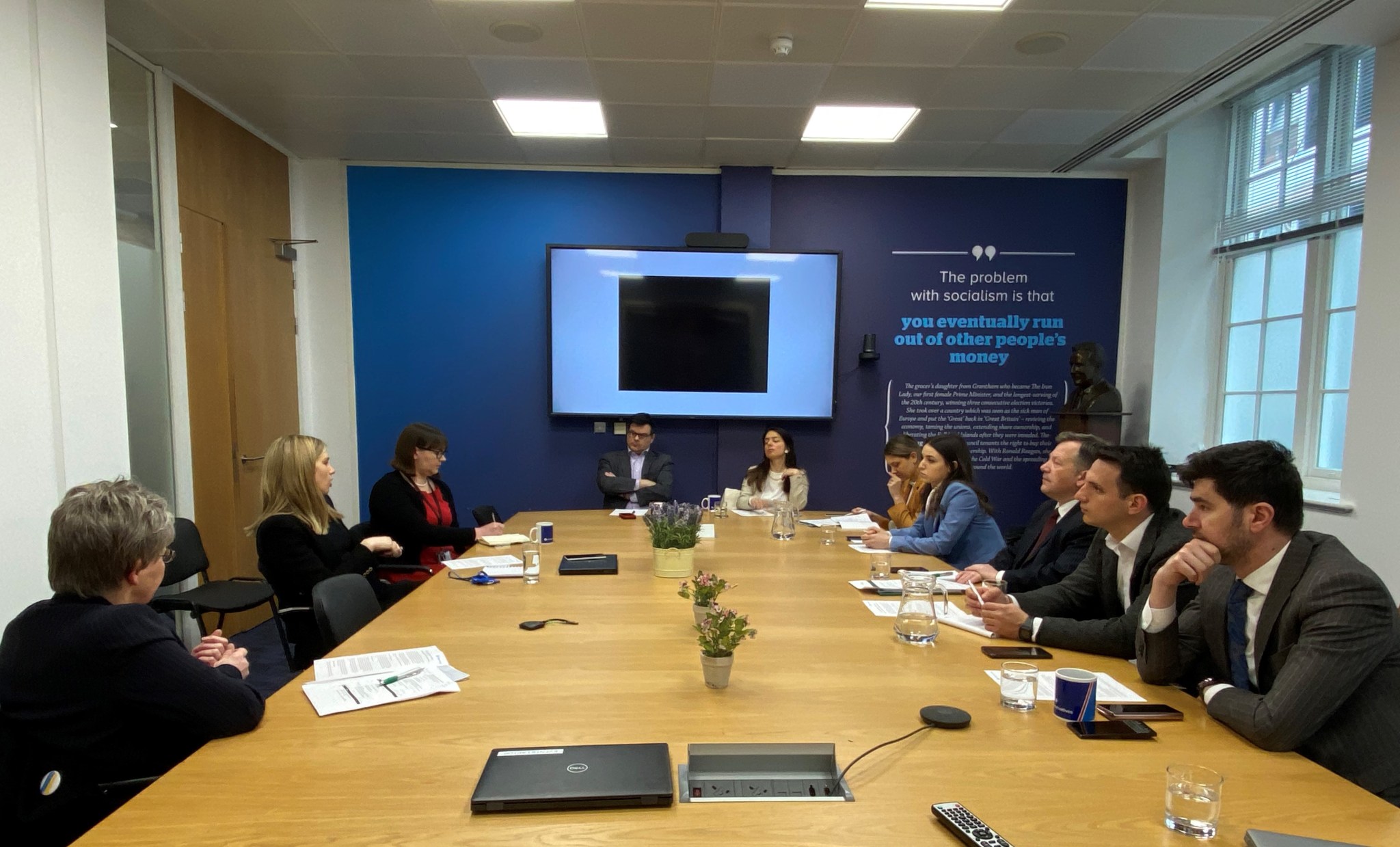From Skopje to London: Parties Learn About Financial Transparency and Compliance in the United Kingdom

Political parties in North Macedonia still have a long way to go to earn the trust of the population. According to an International Republican Institute (IRI) poll conducted in February 2020, 68% of the citizens did not trust political parties, and that percentage remained roughly unchanged in the subsequent March and April 2021 poll, which noted 69%. While these reasons are multifaceted, the lack of transparency among the country’s political parties, particularly surrounding their finances, is one notable factor that contributes to citizens’ distrust.
To address these challenges, the Macedonian Parliament enacted the Law on Free Access to Public Information (“Law”) in 2019, which imposed greater transparency requirements for political parties regarding their income and expenditures. However, these normative adjustments did not produce immediate change, and thus parties remained opaque in their practices.
After identifying the gap between the new legislation and existing levels of party compliance, IRI launched a new program focused on increasing transparency practices and supporting political parties as they adjusted to their new obligations under the Law. Further, IRI provided trainings, detailed administrative procedures for submitting relevant financial documentation to state institutions, and mentored parties’ public information officers (PIO) – those responsible for party compliance with the Law.
To augment this impact and demonstrate the value of financial transparency, IRI organized a one-week study visit in March 2022 for representatives of political parties to the United Kingdom (UK), a country with one of the most notable examples of party transparency and accountability.
In meeting with political parties and institutions, participants gained invaluable exposure to a culture of openness and became acquainted with a rigid system of reporting and auditing. The delegation consisted of four representatives from the largest political parties in North Macedonia: the Social Democratic Union of Macedonia (SDSM), the Internal Macedonian Revolutionary Organization – Democratic Party for Macedonian National Unity (VMRO-DPMNE), the Democratic Union for Integration (DUI), and the Alliance for Albanians (AfA). One representative from the Agency for Protection of the Right to Free Access to Public Information, the institution responsible for overseeing the Law’s implementation, also joined.


During the week, participants met with representatives of the compliance units of the Labour Party, the Conservative Party, and the Liberal Democratic Party. They learned about the UK’s requirements for parties concerning donations, compliance, spending, and reporting. They saw firsthand how much attention the parties give to training and guidance to prevent potential irregularities. Furthermore, participants had the opportunity to learn how the Electoral Commission, the UK’s main oversight body for political parties, operates.

After getting a grasp of the system of compliance and accountability, the group concluded the study trip with a fruitful debriefing session, where they defined action items upon their return. They agreed that the current system in North Macedonia can deliver promising results, but parties must shed their hesitancy and genuinely open to the public. Subsequently, the participants committed to tackling this challenge. As a first step, the four political party members published a joint article to raise awareness of the relevance of party financial transparency. In addition, they prepared their own key takeaways from the visit, which they will share with their respective party leadership and other officials.
As a direct result of IRI’s NED-funded programming, parties have gained vocal advocates, who will serve as the main drivers of change when it comes to financial transparency.
Top